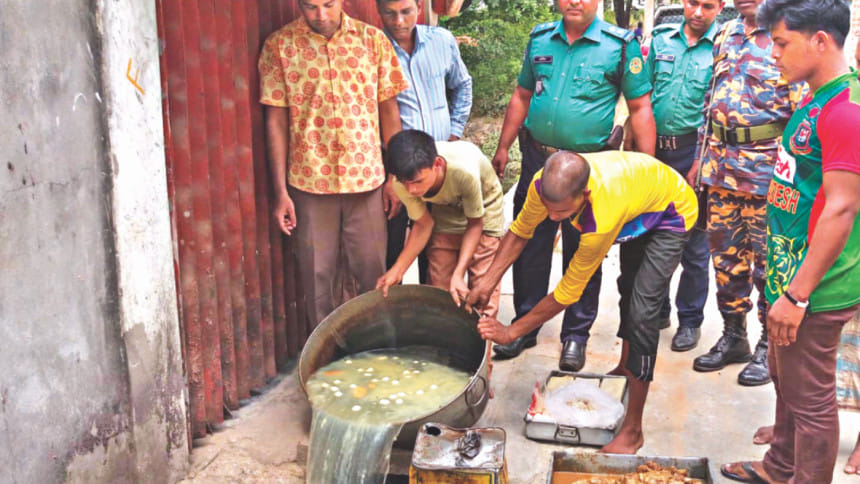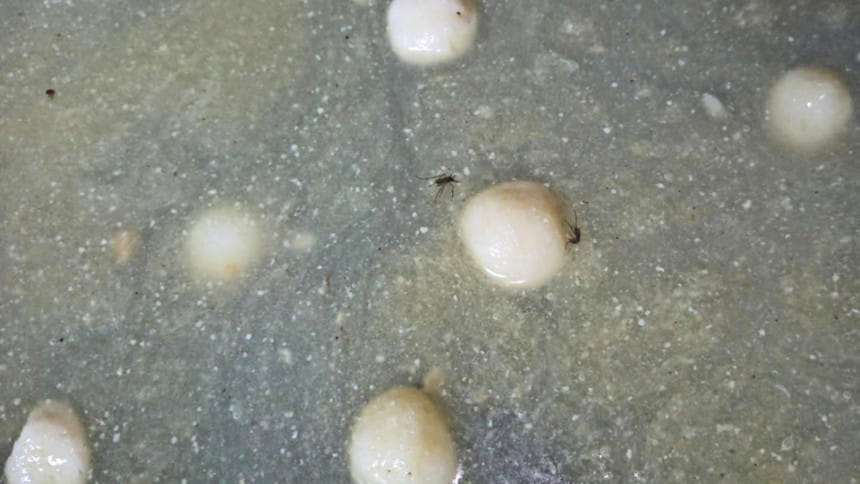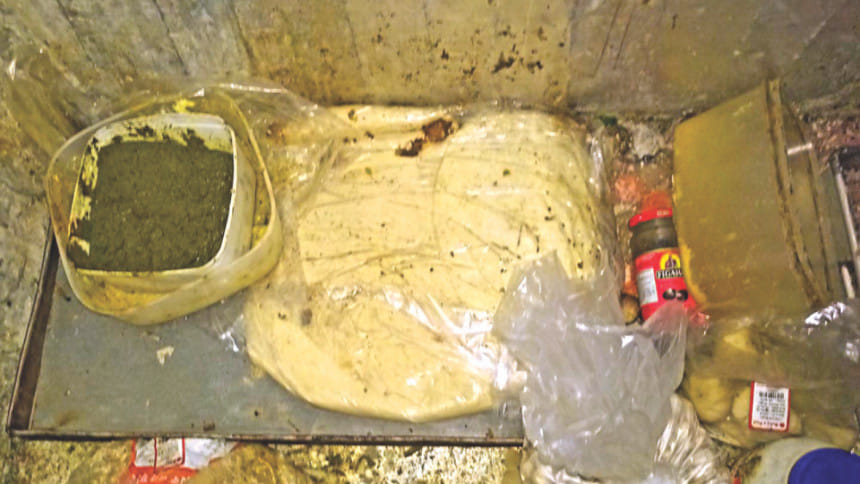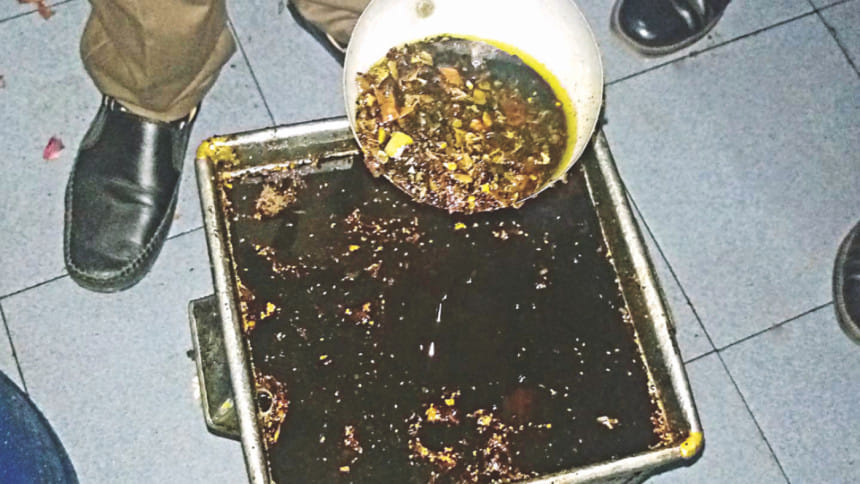Substandard food trade rampant in port city

Nothing beats good food and great company. Be it an occasion or celebration, friends or family members constantly get together at a restaurant or order food from outside to save time and energy.
But often the food is being processed and served in the restaurants or bakeries in an unhygienic way, despite several attempts of trying to contain the situation by the authorities concerned, lack of awareness among owners, consumers and officials reign supreme, alleged residents of Chittagong.
“I mostly eat out as I live in a mess,” said Md Ainuddin, a student of Chittagong College, adding, “Most of the roadside hotels use unclean utensils and prepare food in an unhygienic environment.”
Nasima Akhter, a resident of Golpahar area, faced this issue many times. “We cannot possibly check the inside of every kitchen, the authorities concerned or the owners have to make sure of that.”
“Often, we ignore the way the food is served or prepared,” she said, taking some of the responsibility. “But what alternatives do we have?”

Upon visiting the kitchen of Bake & Fast, a bakery at Bahir Signal in Chandgaon, during a drive conducted by Chittagong District Administration on April 26, mosquitoes, flies and cockroaches were seen floating on the sugar syrup in which the sweets were kept. Malodours were coming from the stale sweets. Around 50kgs of burnt palm oil was preserved in big pots for reuse.
“Earlier, I used to buy sweets or food items regularly. Not anymore,” said Ruhul Amin, CDA executive magistrate and deputy collector (Revenue), who recently fined food producing factories like Swad, Bosh Brothers, Mishti Mela, and Mishti Mukh, in the city.
“Harmful 'ghono chini' (artificial sweetener) is used for making sweets and biscuits. The restaurants are reusing burnt-dalda or palm-oil as well as colouring agents and stale sugar-syrups,” he added.
From January 1 to April 30, through conducting 38 drives, the administration fined 57 restaurants and food factories Tk 34 lakh, he said.
“Customers' awareness is also important,” said Helal Uddin, manager of Hotel Zaman of Chawk Bazar, adding, “Many throw their tissue papers outside the bins or throw food on the ground.”

When asked about the reusing of burnt oil, he opined that willingness of the owners is needed and stressed the importance of awareness among owners and customers.
Chittagong Medical College Principal Prof Selim Md Jahangir said consumption of food processed in an unhygienic way can cause diarrhoea, food poisoning and infection. “Ghono chini, harmful colours and burnt-oil can damage the liver, kidney and bone marrow,” he warned, adding, “Even cancer.”
“These harmful substances can badly affect the womb of a pregnant woman. Babies can be born with disabilities and autism,” cautioned Prof Selim.
Activists claimed cleanliness in the kitchens and working areas cannot be ensured without owners' willingness and coordinated effort from the food monitoring administrations like CCC, CDA, and Directorate of National Consumer Protection Department.
Consumers' Association of Bangladesh (CAB) Vice President Nazer Hossain said this problem would not be solved by fining the eateries only. He stressed the need for conducting a three-tyre training programme for owner-manager and eateries' staff.
“CCC ends their responsibility by only issuing licenses to businesses. They do not monitor afterwards for quality assurance,” alleged Nazer. According to the Chittagong City Corporation's (CCC) health department, there are around 3,000 restaurants and eateries in Chittagong city but only 10 sanitary inspectors to monitor them.
CCC's Chief Health Officer Dr Selim Akter Chowdhury said the inspectors work in a temporary basis, which is also a problem.

When asked why CCC has not made them permanent or hired more inspectors, he declined to comment. “In many cases, owners and managers do not want to follow the instruction as according to the existing law inspectors have no power to impose penalties,” he said, adding, “They can only warn or at best inform CCC.”
“CCC cannot avoid its responsibilities,” said Nazer, criticising its role. “CCC can cancel the licence if the food outlets or restaurants serve substandard food items, and if needed impose imprisonment.”
Ruhul Amin said the business organisations like the Chittagong Chamber of Commerce and Industries can play a major role in conducting awareness programmes among the staff, owners and managers of food outlets and restaurants. Only through conducting drives by CDA, the problem would not be resolved as the magistrates of the administration also work in their relevant fields alongside the drives, he added. “If CCC and other food monitoring departments conduct their regular drives alongside the district administration, the situation would improve,” he opined.

 For all latest news, follow The Daily Star's Google News channel.
For all latest news, follow The Daily Star's Google News channel. 



Comments